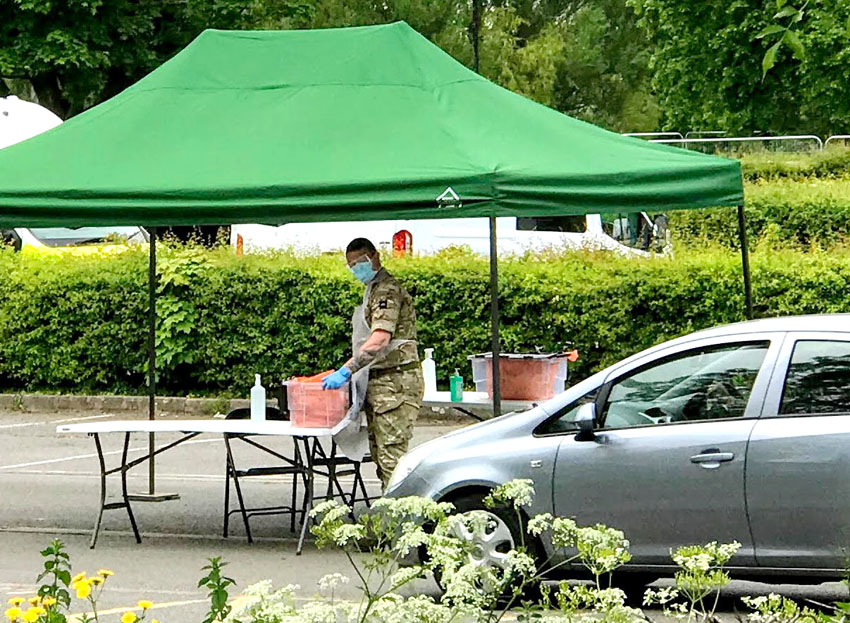
‘I WANT to see this community testing which has been successful in Liverpool rolled out right across the tier three areas, as much as is possible, and I advise all councils to engage,’ Tory Secretary of State Matt Hancock told Parliament yesterday, announcing which areas of England the toughest tier three restrictions will be imposed on.
He held up Liverpool as a model, where 2,000 British Army troops were sent into the city to assist with ‘Test and Trace’ and enforce that the lockdown was adhered to.
He also announced that on Wednesday there were still 16,570 people in hospital with Covid-19 in the UK,and that 696 people had died from coronavirus.
Hancock then reached out to Labour to join him in the national effort. He said: ‘All in all, let us come together and work together to get this virus under control, keep it under control, so that we can get life back to normal as soon as possible.’
He announced large parts of the Midlands, North East and North West, including Manchester, as well as Kent, will face the harshest restrictions in tier three.
A majority of places are in the second-highest level, tier two, including London, and Liverpool city region, previously in the highest tier.
Meanwhile, a rush for details saw the government website repeatedly crash.
The Isle of Wight, Cornwall and the Isles of Scilly, where there have been no recorded cases in the past week, will be the only areas of England in the lowest level of curbs – tier one.
Labour shadow secretary of state Jonathan Ashworth said that the government had agreed to involve MPs and local leaders, ‘but took exception to be challenged by (Greater Manchester Mayor) Andy Burnham. So what role do regional leaders now have? Or is it really the position that the Prime Minister imposes from Downing Street restrictions across the communities of the Midlands and the North, restrictions which will have a huge impact on the livelihoods of families and small businesses.’
MPs are due to vote on the measures on Tuesday, a day before they are due to come into force. A sufficiently big Tory rebellion could force Boris Johnson to rely on Labour votes.
During the debate Tory MP for Buckinghamshire, Greg Smith was angered that there had been zero consultation with local leaders: ‘It is incredibly disappointing news that Buckinghamshire, having entered the National Lockdown in tier one, will emerge into the more punitive restrictions of tier two – a decision that will be hard to understand in the rural communities of North Buckinghamshire that have relatively low infection rates.
‘A decision hard to understand as there has been zero consultation between central government, Buckinghamshire Council and our NHS.’
Tory MP for Poole in Dorset, Robert Syms wanted to appeal the Johnson government’s decision to put his constituency into tier two.
Syms said: ‘There will be bitter disappointment in Dorset, both in urban and rural areas that we are in tier two, although our infection rates actually now are falling quite rapidly, so my main interest today is how we get out of tier two and into tier one.
‘If we are going to have regular reviews i.e. weekly and that is fine. But if we are not, if we are stuck in that tier for two or three weeks I wonder if the Secretary of State would consider some kind of appeals process and I wonder if his minister for state might do the appeals process.’